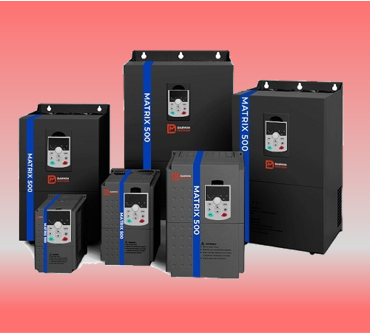Posted on 12th Aug 2024

In the rapidly evolving landscape of industrial automation, Programmable Logic Controllers (PLCs) stand out as a cornerstone technology. Their flexibility, reliability, and ease of programming have made them integral to modern manufacturing and processing environments. CM Industry Supply Automation, a key player in this sector, has effectively harnessed PLC technology to streamline operations and enhance efficiency across various applications. This article explores some of the common applications of PLC controllers facilitated by CM Industry Supply Automation.
PLCs are indispensable in manufacturing environments where precision and repeatability are crucial. CM Industry Supply Automation utilizes PLC controllers to manage and optimize production lines. Whether it's controlling the speed of conveyor belts, regulating the temperature in ovens, or sequencing the stages of assembly, PLCs ensure that processes run smoothly and meet stringent quality standards.
For example, in automotive manufacturing, PLCs control robotic arms that handle tasks such as welding, painting, and assembling parts. By integrating PLCs, manufacturers can achieve high levels of automation, reduce human error, and increase production rates.
Batch processing is a common method in industries such as pharmaceuticals, chemicals, and food and beverage. PLCs are used to manage and control batch operations, including mixing, heating, cooling, and ingredient addition. CM Industry Supply Automation employs PLCs to oversee complex batch processes, ensuring accurate measurements and adherence to specific recipe parameters.
In a chemical plant, for instance, PLCs can control the precise mixing of chemicals and monitor reaction times, optimizing both safety and product quality. By automating these processes, companies can reduce manual intervention, improve consistency, and enhance overall operational efficiency.
Building automation systems benefit significantly from PLC controllers. CM Industry Supply Automation integrates PLCs to manage and optimize various building systems, including heating, ventilation, and air conditioning (HVAC), lighting, and security.
PLCs enable centralized control and monitoring, allowing facility managers to adjust settings based on real-time data and occupancy levels. For example, in a commercial building, PLCs can regulate HVAC systems to maintain optimal temperatures while minimizing energy consumption. This not only improves comfort but also contributes to cost savings and sustainability.
Water and wastewater treatment facilities rely on precise control to ensure effective treatment processes and compliance with environmental regulations. CM Industry Supply Automation employs PLCs to manage various aspects of water treatment, such as pumping, filtration, and chemical dosing.
PLCs facilitate real-time monitoring and control of water quality parameters, such as pH levels and turbidity. By automating these processes, treatment facilities can respond quickly to changes in water quality, optimize chemical usage, and maintain regulatory compliance, ultimately safeguarding public health and environmental quality.
In the packaging industry, PLC controllers play a critical role in automating packaging lines and material handling systems. CM Industry Supply Automation utilizes PLCs to control machinery involved in filling, sealing, labeling, and palletizing products.
For example, in a food processing plant, PLCs can synchronize the operation of multiple machines to ensure seamless packaging of products. This coordination helps to reduce downtime, improve production rates, and enhance overall efficiency. Additionally, PLCs enable real-time monitoring and diagnostics, allowing for quick identification and resolution of issues.
Energy management systems benefit from the precise control capabilities of PLCs. CM Industry Supply Automation uses PLCs to monitor and optimize energy consumption in industrial facilities. This includes controlling lighting systems, HVAC units, and other energy-intensive equipment.
By implementing PLC-based energy management systems, companies can track energy usage patterns, identify opportunities for savings, and implement automated adjustments to reduce consumption. This approach not only lowers operational costs but also supports environmental sustainability efforts.
CM Industry Supply Automation has effectively leveraged the versatility and reliability of PLC controllers across a wide range of applications. From manufacturing and batch processing to building automation and energy management, PLCs play a crucial role in enhancing operational efficiency, improving product quality, and optimizing resource usage. Accodring to Darwin Motion VFD manufacturer in India As industrial automation continues to advance, PLC technology will remain a fundamental component in driving innovation and success across diverse sectors.